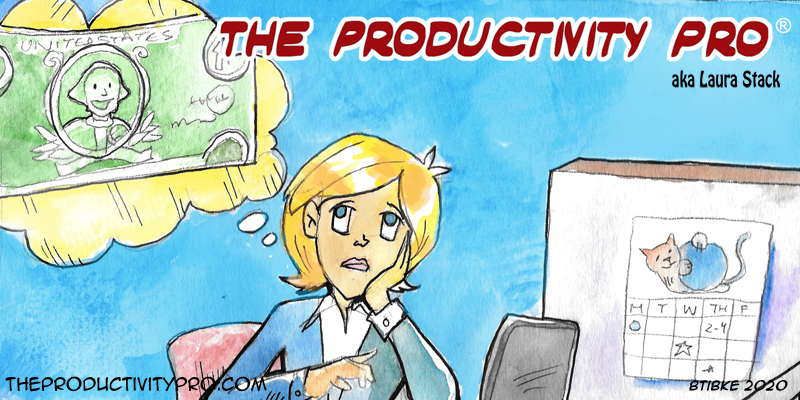
“Money is only a tool. It will take you wherever you wish, but it will not replace you as the driver.” – Ayn Rand, Russian-American writer and philosopher.
There’s an earthy American saying that goes (when used politely), “Money talks, BS walks” —i.e., money persuades better than words. Interestingly, while the concept of money as a motivator is firmly entrenched in managerial culture, it seems many workers have selected the “BS walks” option instead in the last few decades.
Research —some recent, some as much as a century old — indicates that money’s power as a productivity motivator is more underwhelming than most people believe. Some of you may already have experienced the effects of financial rewards improperly used. For those who haven’t, consider this:
-
-
- Small rewards are offensive. Receiving a cost-of-living raise of two or three percent after a year of hard work is disappointing, and a raise of $1,000 a year isn’t much better. But both work much better than $25 or $50 rewards for “initiatives” and contests, or “attaboy” bonuses of $100 or less. They’re nice, but it won’t make much difference at the end of the week. One of my colleagues once worked for a company that instituted such “attaboys”, and the management was confused when no one bothered to work for them. This phenomenon is especially ineffective when upper-level executives receive huge bonuses, even in years when the company underperforms —a common tactic used to retain high-level executives. It emphasizes the assumption that management views most workers as replaceable cogs.
- One-time rewards don’t keep up the good work. Once the reward has come and gone, productivity often drops to its previous level. After all, once the contest or initiative ends, what’s the point of working harder? Sometimes productivity even drops off to a lower level than before the award was received—putting the huge executive bonuses mentioned above in a whole new light. According to work done by psychologist Richard Deci in the 1970s, people given large amounts of money to work on something are likely to slack off after they receive the money.
- Sometimes large bonuses undermine the ability to perform. People often “choke” when in the final rounds of a high-paying contest of tournament, or when working for a higher reward. We’ve all seen it in sports teams, and according to several studies and researchers in the last decade, it also affects individuals working toward to more profitable goal. There may exist a certain maximal level of mental arousal beyond which the strivers are primed to fail.
- Financial rewards don’t work nearly as well as when salaries are high. You’d think the higher the income, the happier someone is, right? It’s true, to some extent. But according to a 2010 study by Daniel Kahneman and Angus Deaton, emotional well-being plateaus past a salary of about $75,000 per year, when most people can afford pretty much everything they want within reason. In other words, once basic needs are met, financial rewards stop working as well.
- Monetary rewards don’t work nearly as well as intrinsic rewards. As the Constant Reader of this blog knows, in past entries we’ve discussed types of motivation in detail. Extrinsic (outside) motivation like high wages, rewards, awards, and the like are common and necessary in any work culture, but it’s hard to buy the kind of kind of job ownership that leads to full engagement. According to a meta-analysis of many studies published in 2010, money doesn’t engage most workers much. It’s the intrinsic awards that really count: pride in your work, happiness, teamwork, a sense of belonging, etc. At most, money serves as a support for intrinsic motivations. Even those who work to live, rather than live to work, do much better when they love what they’re doing. Furthermore, a pat on the back or feedback from your manager here and there works wonders compared to a small, sterile check.
-
Money, It’s a Sin
Monetary incentives do affect motivation, but not the way most managers hope. Any productivity gains tend to be short-term and minimal; and often, monetary rewards result in a subsequent erosion of productivity. Some of these factors have been known about for decades, but managers still focuses on bonuses as a motivation factor because they’re not aware of the research. The industry might prove better off without bonuses at all, especially when the rank-and-file rewards aren’t enough to pay for a good meal at a steakhouse for a family of four—while the C-Suite bonuses are 1,000 times higher. When poorly applied, financial rewards sow more resentment than high performance.
© 2020 Laura Stack. Laura Stack, MBA, CSP, CPAE is an award-winning keynote speaker, bestselling author, and noted authority on employee and team productivity. She is the president of The Productivity Pro, Inc., a company dedicated to helping leaders increase workplace performance in high-stress environments. Stack has authored eight books, including FASTER TOGETHER: Accelerating Your Team’s Productivity (Berrett-Koehler 2018). She is a past president of the National Speakers Association, and a member of its exclusive Speaker Hall of Fame (with fewer than 175 members worldwide). Stack’s clients include Cisco Systems, Wal-Mart, and Bank of America, and she has been featured on the CBS Early Show and CNN, and in the New York Times. To have Laura Stack speak at an upcoming meeting or event, call 303-471-7401 or contact us online.


